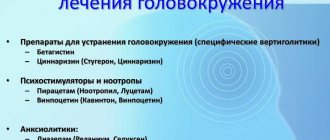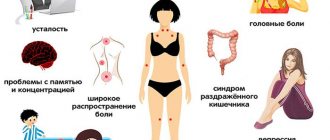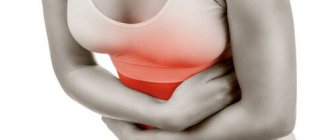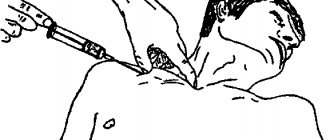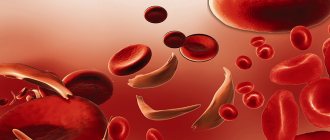Regular nutrition is necessary for a person to live a full life and maintain performance. There are situations when eating becomes a real test for a person - dizziness after eating, a feeling of weakness and nausea. Dizziness may appear rarely or regularly, depend on the amount of food eaten, or even bother you after drinking tea and a sandwich. Regardless of the frequency of occurrence of this condition, the possible cause should be identified and, if possible, eliminated as soon as possible.
State of nausea
Nausea is a feeling of discomfort that is felt in the upper abdomen. It provokes a gag reflex, which helps empty the stomach of contents.
Regular nausea after eating may not be related to digestion. In complex pathological conditions, the body tries to protect itself. To do this, it reduces the energy costs of its functions, for example, digesting food. To do this, you have to get rid of the eaten foods as unnecessary ballast. As a result, nausea, vomiting, and removal of stomach contents begin.
If you feel nauseous after eating, the reasons may be different; you need to find out what painful condition causes the body to experience an unpleasant feeling. This may relate to physiological processes, for example, when carrying a child, or be a signal of a disease - allergies, viral pathology, parasite infection.
Symptoms
The main symptom is an unpleasant, heavy feeling in the epigastric region, which spreads progressively to the upper part of the throat. This is nausea, it always precedes vomiting, at the chemical level it is caused by excitation of the vagus nerve, which transmits signals to the vomiting center.
Nausea is accompanied by the following symptoms:
- increased salivation;
- decreased blood pressure;
- sudden weakness;
- vasoconstriction;
- increased heart rate;
- pale skin;
- frequent, shallow breathing;
- coldness of hands and feet.
Peristalsis in the digestive system is disrupted. The muscle tone of the fundus of the stomach decreases, but the movement of the duodenum increases. Due to this, its contents fall higher, and the contents are expelled outward, that is, vomiting.
What pathologies does it indicate?
There may be serious reasons for persistent nausea after eating.
They signal the following pathologies:
- Hypertension. Pathology, the main symptoms of which are high blood pressure, weakness, dizziness, nausea.
- Hypothyroidism. A pathological condition of the thyroid gland, which is characterized by a feeling of chills, excessive sweating, anxiety and drowsiness.
- Digestion problems in the stomach. The pathology will be accompanied by unpleasant belching and constant heartburn. After overeating, there is a feeling of heaviness in the stomach, general drowsiness, and difficulty breathing.
- Brain concussion. Nausea is observed regularly, but after eating it intensifies and may result in vomiting.
- Gallbladder or liver dysfunction. Additional symptoms are bitterness in the mouth, pain under the ribs on the right side.
- Pancreatitis. When the pancreas becomes inflamed, food processing slows down. Signs of the disease are systematic pain under the ribs on the left, diarrhea or constipation.
- Heart attack. The condition is characterized by nausea that does not go away throughout the day, accompanied by shortness of breath and fatigue for no apparent reason.
This is not a complete list of diseases, signs of which include nausea after eating. The reasons are varied, doctors determine them, you need to seek advice in a timely manner.
Causes and solutions
Some physical conditions cause an unpleasant feeling after eating. This is how the body protects itself, gets rid of toxic substances, and gets used to new conditions. But in some cases, vomiting mechanisms are activated during serious pathologies. It is important to recognize these problems and know how to eliminate them.
Poisoning
Food poisoning is a common cause of nausea. Failure to comply with storage or preparation rules contributes to the proliferation of pathological microorganisms in products.
Their toxic waste spreads through the blood and accumulates in the internal organs, which disrupts their functioning. Signs appear 4 hours after eating.
Poisoning often occurs with the following dishes and products:
- salads with sour cream or mayonnaise;
- cakes;
- homemade alcoholic drinks;
- glazed cheese curds;
- tomato juice;
- fermented milk products;
- eggs;
- boiled sausage;
- mushrooms;
- cakes with cream.
To help a person in case of poisoning, you need to quickly rinse the stomach. To do this, the victim is given a liter of plain or salt water to drink, then vomited. The procedure must be done even if there is vomiting, since the mucous layer of the stomach must be thoroughly cleaned.
Vomiting is induced until the contents of the emanating masses are transparent. The injured person needs to be given a rest and given sorbents to drink, which will collect all the toxic substances. The most effective drugs are Activated carbon (1 tablet per 1 kg of person’s weight), Enterosgel, Polysorb (use according to instructions).
Food allergies
Malaise occurs when eating food with an allergen, in response to which the immune system responds hostilely. Any protein can become a source of intolerance. Not all people have food allergies. It depends on the immune system. Most often, soy, nut, egg, wheat, and milk proteins are provocateurs.
If you suspect a food allergy, you need to undergo special tests. If the results are positive, try not to include the corresponding foods in your food. In case of acute illness, you need to rinse the stomach, drink a sorbent and an antihistamine (Loratadine, Suprastin).
Side effects from taking medications
Sometimes taking medications causes side effects such as nausea. Often these are antibiotics, iron supplements, antidepressants, vitamins, medications for flu and inflammation. To reduce the negative consequences, it is necessary to comply with the dosage prescribed by the doctor, expiration dates and storage conditions.
If you experience any unpleasant sensations, you should contact your doctor with a request to change the medication, but this is not always possible. When treating oncological pathologies, nausea must be endured until the end of the course of therapy. For pregnant women, the doctor will recommend remedies that dull heavy sensations after eating.
Disorders of the vestibular apparatus
Motion sickness, or “sea sickness,” is familiar not only to ship passengers. This problem also occurs when traveling by car, often after a heavy lunch in a stuffy cabin. The reason for this is a weak vestibular apparatus. This condition is typical for children and adolescents of adolescence. But sometimes a peculiarity of an organism remains for life.
Nausea during motion sickness can be prevented if you take special remedies in advance, for example, Aero-Sea. Persons with this feature need to sit in front in order to look into the distance. It is useful to suck a slice of lemon with sugar, mint candy.
Somatic causes
The feeling of nausea can be caused by diseases of the nervous system. Overexcitement, prolonged stress, accumulated emotions - all this is postponed and does not find a way out at the psychological level. Then the body looks for a physiological solution.
In people with an unstable nervous system, nausea is often fixed as a reflex. This is how they react to problems. You can only get rid of it with the help of medications, meditation, and psychological support. In severe cases, even positive emotions reverberate unpleasantly in the digestive system.
After meals
If you feel nauseous immediately after eating, then an overfilled stomach is not able to cope with such an amount of food. It has stretched to the maximum and requires a reduction in load. Also, excess fat in dishes can cause discomfort in the esophagus. Violation of nutritional rules can quickly lead to diseases of the internal organs.
After fatty foods
Such food in large quantities provokes nausea and vomiting. The stomach is unable to process heavy food and sends it back.
Nausea after fatty foods is a symptom of certain diseases:
- liver dysfunction;
- inflammation of the gallbladder;
- obstructed bile flow;
- pancreatic diseases;
- kidney pathologies;
- intestinal inflammation;
- impaired level of stomach acidity.
To relieve an attack of nausea, you can use the drugs Mezim, Almagel, Phosphalugel. They help improve the digestion of fatty foods. Cerucal, Aeron, Zofran can eliminate nausea. They have side effects and should be taken in consultation with your doctor.
After a heavy meal
Excessive amounts of food will be difficult to digest; there may not be enough enzymes for this. Their deficiency will provoke stagnation of food mass and an increase in intra-abdominal pressure. Compression of internal organs stops intestinal motility and reduces the mobility of the diaphragm. All this leads to a feeling of heaviness, belching, and the likelihood of reflux, nausea, and vomiting increases.
A leisurely walk after a large feast helps reduce discomfort. Physical activity increases intestinal motility and promotes the synthesis of digestive enzymes.
After any food
If any meal is accompanied by nausea, then this is a reason to urgently undergo examination. It is necessary to analyze the actions after eating. You cannot immediately engage in sports, this causes an unpleasant symptom; long trips on rough roads with shaking also contribute to a similar symptom. Eating unusual foods - exotic fish, insects, blue cheese, fruits - may be the cause.
To reduce nausea, Motilium, Motilak, Filtrum (useful for poisoning) are useful. Validol will reduce the manifestations of an unpleasant symptom, remove symptoms of anxiety, and signs of angina pectoris. Etaperazine is recommended for vomiting.
Medicines only make you feel better. To eliminate the cause, you need to consult a doctor. Without treatment, the problem will get worse over time. It is important to follow a diet. The sooner you start this, the fewer problems there will be in the future.
With a heavy stomach
An unpleasant feeling can be caused by overeating, poor chewing, irregular meals with long breaks, and dishes that irritate the gastric mucosa (spicy, hot, salty).
To eliminate nausea, you need to change your lifestyle - chew food thoroughly, reduce portions, normalize your diet. If this does not help cope with discomfort after eating, then the cause is diseases of the digestive system. They must be treated together with a doctor.
Accompanied by pain syndrome
Nausea with pain signals the development of the disease. If this occurs, you should consult a doctor.
Pathology can be determined by the location of the diseased area:
| Place of pain | Suspected pathology |
| Small of the back | Pyelonephritis, renal colic. |
| Stomach area | Diseases of the upper digestive system - gastritis, gastric bleeding, ulcers. |
| Head | Migraine, stroke, hypertension. |
| Right side under the ribs | Hepatic colic, cholecystitis. |
| Left side under ribs | Inflammation of the pancreas. |
Elimination of nausea will be possible with the treatment of underlying diseases.
With dizziness and weakness
Nausea with such manifestations develops in women before or during menstruation. This is how hormonal changes manifest themselves. Along with blood loss, physiological anemia begins. These same signs may indicate pregnancy.
If dizziness and weakness progress to fainting, then a sharp decrease in blood pressure can be assumed.
The following factors can provoke this condition:
- iron deficiency in the body;
- lack of sleep;
- heavy physical activity;
- constant stress;
- overwork;
- lack of vitamins.
If such signs occur regularly, regardless of the menstrual cycle, there is a suspicion that the patient has a brain tumor.
A doctor can help with these symptoms. To reduce their intensity, medications and vitamin complexes are prescribed. If necessary, recommendations are given for undergoing an examination and changing your daily routine.
If you have anemia, you need to include meat, liver, apples in your diet, and take iron supplements if necessary. During pregnancy, it is recommended to go without medications. To reduce discomfort in the digestive system, you need to eat without haste, alternate work with rest, and avoid unpleasant odors and stressful conditions.
For helminths
Parasites can live in the stomachs of adults and children. The waste of their existence is toxic, which is why you feel sick after eating - the poisoned body is trying to get rid of poisons. Infection with helminths can be confused with other diseases, for example, pathologies of the gastrointestinal tract, colds.
Along with discomfort in the esophagus, a person suffers from bloating, diarrhea, constant abdominal pain, and a burning sensation in the anus in the evening. With a prolonged problem, anemia begins and depression develops.
Diagnosis of helminth infection is difficult and does not always show the correct results. This occurs due to the reproduction characteristics of certain types of parasites. If you experience nausea after eating, you should definitely consult a specialist to identify the cause. The infectious disease specialist prescribes laboratory tests to determine the type of worms and determines treatment.
Self-medication is dangerous. Each type of helminth requires specific medications. It is impossible to take medications prophylactically, they are very toxic. To prevent infection, you must follow hygiene rules.
Side effects of medications
Nausea can be a side effect of taking antibiotics.
Unfortunately, sometimes taking vital medications can be accompanied by side effects such as nausea. Most often these are drugs from pharmaceutical groups such as:
- Vitamins
- Antidepressants
- Antibiotics
- Iron supplements
- Anti-flu drugs
- Anti-inflammatory drugs
In order to minimize discomfort, you must carefully observe the dosage, method of use, storage conditions, and expiration dates of the medications.
Read: What can you drink for nausea? Review of drugs and traditional methods of treatment
Features of diagnosing the condition
When conducting a diagnosis, the doctor must exclude the psychogenic cause of nausea, identify how it affects the general condition of the person, and whether there have been similar cases before. The nature of the unpleasant symptom depends on gender, age, and different conditions, and therefore has its own characteristics during examination.
In men
Nausea in representatives of the stronger sex usually indicates illness, motion sickness, and overeating. Under stress, this feeling rarely develops. Men are susceptible to discomfort in the gastrointestinal tract due to a hangover syndrome. If these reasons are not suitable to explain the unpleasant sensation, then you need to undergo an examination; there is a risk of developing infections, intoxication, pathologies of the brain, and thyroid gland.
Among women
There can be several reasons for nausea after eating in women. They will not necessarily be associated with illness. Changing levels of stress hormones affect the release of adrenaline, which actively contracts the muscles of the digestive system.
In women of childbearing age, nausea often occurs before menstruation. This is due to fluid retention in the body, which provokes tissue swelling. This leads to a slight increase in intracranial pressure, which causes an unpleasant feeling in the stomach area.
Taking some oral contraceptives causes nausea. This side effect is observed only during the period of addiction to the drug, then it goes away. A prolonged unpleasant feeling will be a reason to change the contraceptive.
During pregnancy
Many people experience nausea while expecting a baby. This is a consequence of intoxication, which develops as a result of the female body’s adaptation to the state of pregnancy. Attacks of stomach discomfort can begin from strong odors, even the sight of food. Emotional overexcitement, colds, fatigue only intensify negative feelings.
In older women
After 60 years, chronic pathologies worsen, and internal systems begin to malfunction. Most often, digestive diseases, disorders of the blood vessels, heart, and neurological nature are diagnosed.
The mucous layer of the intestines and stomach in older people becomes thinner and its functionality is lost. For this reason, nausea can begin even due to mild irritation, changes in blood pressure, disruption of the daily routine, changes in weather, or emotional excitement. Such factors must be taken into account when diagnosing. Constant digestive disorders cannot be ignored; they can signal a heart attack, the development of oncological pathologies, or serious intoxication.
The child has
When diagnosing, it is necessary to take into account that nausea in children can develop from motion sickness, from experienced excitement, or after outdoor games. This is considered a common occurrence.
Common causes of nausea in childhood are:
- entry of a foreign object into the stomach;
- infections;
- poisoning;
- appendicitis;
- encephalitis;
- meningitis;
If prolonged nausea occurs, you should consult a doctor, especially if there is a fever or coldness of the extremities, convulsions, or other symptoms.
Diagnostic methods
At the Clinical Brain Institute, you can undergo a complete diagnosis for frequent headaches, nausea and weakness. It includes several stages, each of which is aimed at detecting different violations. Your doctor may order the following tests:
- general and biochemical blood tests will indicate inflammatory processes, disruption of the functioning of individual organs and systems;
- diagnostics of the cardiovascular system, which includes ultrasound with contrast agent, electrocardiography;
- encephalography - examination of the brain, identification of areas with low levels of bioelectrical activity;
- X-ray of the cervical spine;
- CT, MRI - are used to diagnose brain tissue, blood vessels, and neck joints.
The availability of modern equipment, highly qualified doctors, and the ability to conduct a large number of tests are the main advantages of our center. Based on the data obtained, you can select the most effective treatment that will truly eliminate the cause of the pain.
How to distinguish a virus
With a viral disease, nausea also occurs.
There are several signs that will help distinguish pathologies from each other:
- when infected with the virus, there will be a runny nose, fever, cough, increased lacrimation, and muscle aches;
- under the influence of poisoning, feces become liquid or change color and smell, which is not typical for a viral infection;
- food poisoning is characterized by dry mouth, severe weakness, rare urination, and loss of body weight;
- urine, when infected with a virus, changes color and smell, but when poisoned remains the same.
A specialist must make a diagnosis. To provide first aid, it is important to independently determine poisoning, but further treatment should be entrusted to a doctor.
What not to do due to nausea
Numerous tips on what to do when feeling nauseous should be followed wisely. Rash actions can lead to complications. For example, you should not induce vomiting in a person who is in a pre-fainting state.
Convulsions and high blood pressure are also contraindications. For a bedridden patient, vomit can enter the respiratory tract and lead to death. It must either be turned on its side or this procedure must be abandoned.
The natural urge to vomit should not be suppressed. It is important for the body to cleanse itself of toxic substances; there is no need to resist. Poisoning will have serious consequences; it is better to remove low-quality products from the stomach. In case of intestinal disorder, that is, diarrhea, inducing vomiting is already pointless. Harmful elements come out in a different way.
When the feeling of nausea after eating goes away within a few minutes or an hour, or occurs sporadically, you can solve the problem yourself. If you regularly experience prolonged discomfort, you should consult a doctor.
Emergency conditions
It is important for a specialist to describe additional manifestations of the condition that will help accurately determine the diagnosis.
You need to be especially careful when the following alarming symptoms appear:
- blood in vomit;
- unbearable headache;
- speech impairment, confusion;
- heavy sweating;
- shallow, rapid breathing;
- blood clots in stool or black stool;
- fainting;
- spasm of the muscles of the occipital region.
If you have a head injury, you should definitely visit a doctor, even if there are no negative signs of injury.
Where to contact
First of all, they turn to a therapist (small children - to a pediatrician). If necessary, instrumental examinations will be prescribed - x-rays, tomography. If necessary, the doctor will give a referral to specialized specialists - a traumatologist, gastroenterologist, neurologist.
Hypovolemia
Hypovolemia is a decrease in the total volume of blood, which ensures the normal functioning of all organs. In addition to dizziness after eating, it can manifest itself as follows:
- Cramps and pain in the stomach;
- Permanent thirst;
- Weakness and feeling of fatigue;
- The appearance of nausea, sometimes turning into vomiting.
This disease requires immediate medical attention, including calling an ambulance in case of a sharp exacerbation of symptoms.
Anti-nausea medications
Discomfort after eating is most quickly stopped with medications.
Effective remedies for nausea:
- Cerucal. Will help with hiccups, nausea, vomiting. Its main effect is to stimulate gastric peristalsis. Used for poisoning, inflammation of the stomach. Not prescribed for children under 14 years of age, adults over 65 years of age, pregnant and lactating women.
- Motilium. Used for nausea and vomiting. Strengthens motility in the digestive system. Prescribed to children and adults during pregnancy in consultation with the doctor.
- Buxopan. Has antispasmodic and choleretic effects. Used to treat inflammation of the pancreas and gallbladder. Relieves belching, nausea, heartburn. Not recommended for children under 6 years of age.
- Sumamed. An antibiotic used for infectious lesions of the stomach and intestines, which are accompanied by nausea. Recommended for adults and children, pregnant women after consultation with a doctor.
- Holosas. This is a rosehip syrup for use against nausea during pregnancy. A non-toxic drug, it has a weak diuretic effect, reduces the load on the liver.
- Raglan. It is used for nausea of various origins. Allowed for children from 6 years old. Not recommended during pregnancy. For elderly patients, long-term use is undesirable.
- Enterol. Probiotic normalizes intestinal microflora, resulting in decreased nausea and vomiting. Allowed for children after one year, with caution during pregnancy.
The selection of medications should be done by a doctor. He also gives recommendations on the dosage regimen.
Reviews
“Activated carbon should be in every home; we used to take it with us on trips, but now Enterosgel has appeared. Very convenient for nausea from poisoning. You don't have to drink it. Helpful when traveling."
Valeria, Tyumen
“I don’t use medications for nausea. The stomach is already bad, chemicals will not do any good. I drink salt water or just fast. This is the best way - to let the body return to normal on its own.”
Artem, Krasnodar region
Svetlana, Barnaul: “Cerukal helped well with sudden nausea. It quickly relieved the attack and did not lead to vomiting. The attending physician advised me. But I take it in emergency cases when urgent measures need to be taken.”
Svetlana, Barnaul
Treatment
Nausea is a symptom of many diseases. Treatment is prescribed depending on the disease. Mild vomiting is treated with various tablets and suspensions. Taking medications should be discussed with your doctor. After taking the medicine, listen to the sensations. If there is no relief, the medicine does not work, use should be stopped immediately. Omez, Rennie, Festal, Mezim, Gastal are the best medicines for the disease. If the cause of the painful condition is overeating, you need to take medications with enzymes.
If you feel sick not from food, but because of neuroses, you should immediately begin treatment with sedative medications.
Nitrofurans will help alleviate the condition of infectious diseases. After prescribing the drugs, intestinal upset is not observed. Enterofuril is prescribed to children of preschool age.
Antispasmodics brilliantly combat the urge to vomit. Motilium (an antispasmodic) begins to act within a few minutes. After taking it I don’t feel sick for about two hours. The patient has time to regain strength and replenish the body’s water supply.
Antibiotics save you from any infection. They act after a short period of time. All medications are prescribed by the attending physician.
To determine the causes of a painful condition, a number of tests are prescribed: a blood test, a study of intestinal microflora, and a stool test. After conducting laboratory tests and collecting sufficient information, instrumental examinations are prescribed depending on the suspicion of the disease (ultrasound, MRI, CT, colonoscopy).
Specialist help
Sometimes you shouldn’t waste time and need to urgently call an ambulance. If you have vomiting and a general painful condition, you will not be able to get to the hospital on your own. Doctors will arrive, pick up the patient, and in the hospital they will determine the etiology of the disease.
If the turbidity is not severe, but constant, then the patient is sent to the local physician. After the accompanying symptoms are determined, the therapist will refer you to specialist clinic doctors (allergist, gastroenterologist, infectious disease specialist).
Prevention
Nausea does not happen without a reason. A healthy lifestyle is the key to vigor. You should not be lazy to do exercises. It is worth reviewing your diet and drinking more spring water. Avoiding cheese and fatty foods will be beneficial. Eat right - in small portions four to five times a day.
Don't have a belly celebration after work. Remember that proper nutrition is the key to longevity. Sports and natural food will give you many years of healthy life, and a sense of proportion will protect you from terrible diagnoses.
Self-prevention
Preventing attacks of nausea will involve eliminating the causes of its occurrence. If you have motion sickness, you should stock up on medications against this syndrome in advance. To avoid discomfort after alcohol and a large feast, you need to limit yourself to drinks and fatty foods that are difficult to digest. After eating, you don’t need to sit for a long time; it’s better to walk slowly to activate digestion.
If you are prone to psychogenic attacks of nausea, you need to avoid stress and take sedatives. During pregnancy, you need to select medications to make the woman feel better. It’s good to do special exercises, strengthen your immune system, and spend more time outdoors.
Leading a healthy lifestyle
When the causes of nausea after eating are known, treatment will be aimed at eliminating them. You can improve your health by changing your lifestyle. Maintaining a daily routine is of great importance - going to bed on time, eating regularly, walking in the fresh air. This is important for children, elderly people, pregnant women. Such categories often suffer from stomach discomfort due to fatigue and emotional overload.
You should devote time to physical activity several times a week. Sports events will keep the digestive system in good shape and will not allow peristalsis to weaken. This advice is relevant for men over 35 years old.
Head injuries should be avoided. The vomiting center is very easily excited, causing attacks of nausea. After a skull injury, an unpleasant feeling of discomfort in the stomach often develops, which is difficult to combat. When engaging in outdoor activities, you need to protect your body from damage.
Diet and nutrition correction
With a balanced diet and diet, you can get rid of nausea. For people prone to stomach discomfort, it is important not to use a lot of spices, seasonings, sauces that will irritate the mucous layer of the digestive organs. You also need to use less fresh garlic and onions on an empty stomach. Overeating is dangerous, especially in the afternoon.
It is useful when nausea sets in, suck on a slice of lemon sprinkled with sugar, chew mint leaves, or any sour berries. Your daily diet should include first courses to enhance intestinal motility, try to eat up to 400 g of fresh vegetables, herbs, and fruits. It is important to monitor the emptying of the digestive system. It must work well, any failure must be corrected immediately.
It is better to drink plain water, without gas, dyes, or flavors. Try to exclude foods that are difficult to digest (cabbage, radishes, legumes, spicy foods). Reduce the consumption of foods that provoke belching - grapes, pears, fermented milk products.
Possible complications
It is frivolous to consider nausea after eating a minor health problem. It can have serious complications without proper treatment. The main negative consequence is vomiting. It leads to dehydration and rupture of the esophagus. In severe cases, damage to the gastric mucosa and toxic damage to lung tissue may occur.
Against the background of constant nausea, a depressive state often develops. Discomfort when eating food reduces the quality of life, especially in the presence of psychological problems. You can’t fight stress on your own; you need to use medications.
The increase in nausea after eating cannot be ignored. It warns of health problems. What their nature is - temporary or permanent - must be determined by the doctor. It is important to undergo examinations to determine the cause.
From the video you will learn about several reasons why you feel sick after eating.
